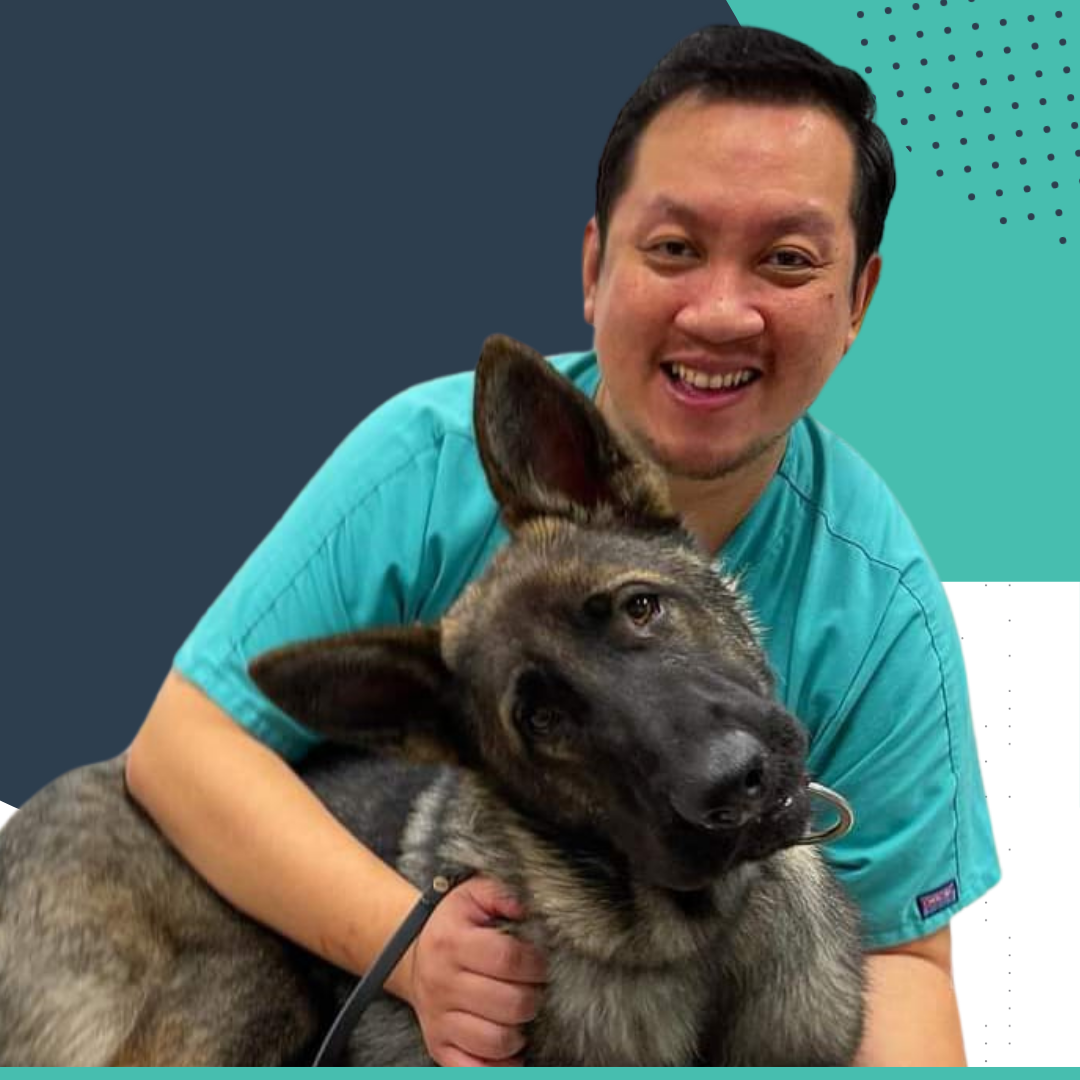Soft Tissue Surgery for General Practitioners: On Demand
10 CPD points

Registered veterinarians only.
You might perform soft tissue surgery every day, but do you feel ready for the next surgical case? This modular course has an estimated completion time of 8-10 hours. It contains references, resources and presentations recorded live in early 2023.
There are plenty of reasons you might seek an update on soft tissue surgery in clinical veterinary practice:
- Not everyone has a surgical mentor at work
- You’d like to learn beyond what the textbooks can tell you
- Everyone seems to have different approaches
- Recommendations change & you’d like an update.
Dr Leong explains his approach to surgical cases in a way that makes sense, encourages the highest standard of clinical care, and is achievable in general practice.
Confidence in soft tissue surgery is important, and it starts with being up to date. Give yourself the opportunity to grow, today.
Soft tissue surgery CPD online
- Acknowledging & working with your existing skills
- Approaching surgery with an open mind
- Making the most of what’s available
- Deciding when to make the cut
- Closing wounds & incisions
Refresh the basics, then go beyond
This online course has been developed specifically for small and mixed animal veterinarians, and is focused on some of the key surgeries seen regularly in general practice. A broad discussion of each procedure is followed by useful and practical answers, for example, how and when to use drains in dog fight wounds, how much lavage is enough, and which signs indicate that you should cut a potential ex-lap. This course is suitable for any registered veterinarian seeking a refresher, an update, or answers to some of those nagging questions about surgical procedures in GP.
-
SIX MONTHS OF ACCESS TO COURSE LIBRARY
-
CPD WHENEVER YOU WANT
-
DOWNLOADABLE NOTES
-
CERTIFICATE UPON COMPLETION
-
MOBILE FRIENDLY INTERFACE
PROFESSIONAL DEVELOPMENT FOR VETERINARIANS, ONLINE
Practical topics for your surgical practice
- Best practice given the infrastructure & facilities you already have
- Responsible & effective antimicrobial choices
- What’s really going on in a dog fight wound
- Managing urinary obstruction & dealing with uroliths
- What to expect in a septic abdomen
- Diagnostic imaging for ex-laps & when to cut
Takehome messages
- First, do no harm
- Begin with what’s common
- Use your experience & complement it with new knowledge
- Discover strategies for dealing with the unexpected
- Keep calm under surgical pressure
COURSE OUTLINE
Bonus Module – Adaptive approach to small animal surgery in general practice
- Free module for all registered veterinarians
This module describes how to reach for best practice, given your clinic’s infrastructure and existing facilities. Accepting and working with what you have right here and right now can help you to deal with the surgical case in front of you. In this module, Dr Leong describes how to set yourself up for success and shares some creative ways of making the most of the equipment at your fingertips.
Module 1 – Gastrointestinal tract surgery
Module 2 – Feeding tubes and exploratory laparotomies
An ex-lap is not necessarily the same as a GI foreign body surgery. Once again, there are elements of diagnostic imaging which can help you determine when to cut, and where to focus. Once you’re committed, you’ll want to get underway and prepare to collect biopsies (covered next week). Aftercare is absolutely vital, too… and this is where feeding tubes come in. This module covers feeding tubes in depth, including uses and potential complications.
Some of us view urinary obstruction with trepidation, from the clinical presentation to the stabilisation process, and through that long road to client education and lifetime management. This module is all about unblocking urinary obstructions and the major surgical options for urolithiasis: cystotomy, urethrotomy, and urethrostomy.
Module 5 – Management of dog fight wounds
First, physiology. This recap will help you manage the case, and explain it to your clients in a way that justifies your cautious approach. Using physiology as a starting point, this module moves through stabilisation and diagnostic imaging before getting down to that gaping defect. Critical points include the utility of culture and sensitivity testing and antimicrobial therapy, and which surgical techniques and suture characteristics are most likely to succeed. The final word is on drains – to place, or not to place? Don’t forget the e-collar…
A VETPRAC COURSE WILL PAY FOR ITSELF
INVEST
Six modules of flexible online learning & a $497 investment in your CPD
LEARN
CPD to complement your existing knowledge base & skill set
RETURN
Take your ability to assess & manage surgical cases in general practice to the next level
Your Educator

Dr Ryan Leong
JOIN SOFT TISSUE SURGERY
ON DEMAND FOR INSTANT ACCESS
Sign up today and get started

Your Questions Answered
What is “On Demand”?
We created the On Demand series because you asked us for longer course access. The veterinary industry can throw busy times at us, and we received more and more requests from individuals who needed more time to complete their online courses. We think 6 months is the sweet spot – you have plenty of time to work through your CPD, and we can regularly review and update the content to make sure the course stays relevant. You can revisit the materials as often as you wish.
How and when do I access learning materials?
We use a one-stop learning platform for our web-based courses. It’s intuitive, simple and easy to navigate, and we’ll email login details to you as soon as your purchase is confirmed. You can access notes, recordings and resources any time of day or night via your personalised course library. You don’t have to watch a whole video in one sitting, and you’re in complete control.
How long is course access open?
24/7 access is available for 6 months via your course library, starting on your purchase date. For example, if you sign up on July 1st, your access will be open until January 1st the following year. We’ve chosen 6 months because veterinary medicine moves fast and our goal is to provide up to date learning materials to the VetPrac community. The education team will assess, review and update the course at the end of the subscription period. This way, we know we’re offering only current and relevant information.
What happens when time runs out?
What kind of learning materials are included?
Is there learning support available?
Are there assessments to complete?
Will I get CPD points and a CPD certificate?
You certainly can! Each registration you will receive a CPD certificate with your points. All you need to do is complete the quiz questions at the end of the course. We’ll generate your certificate and email it to you.
